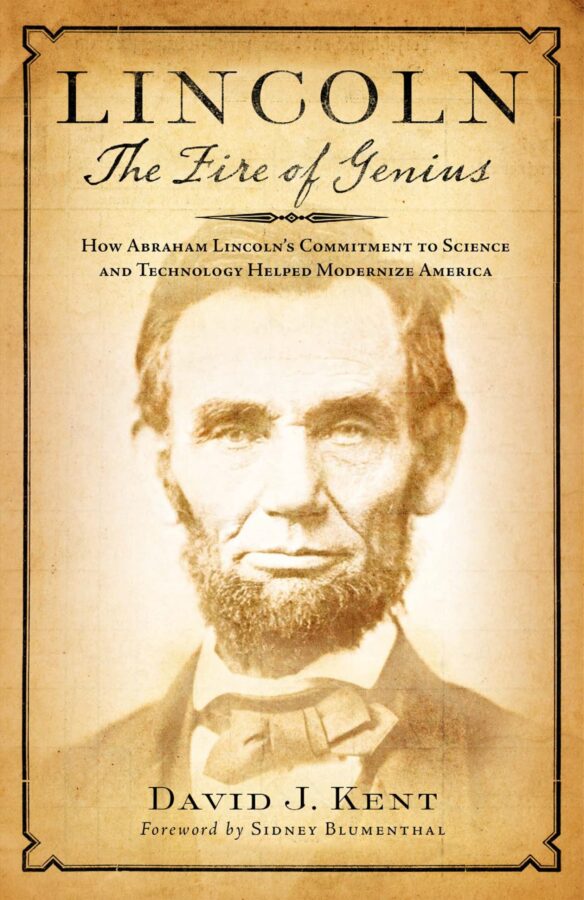Lincoln: The Fire of Genius: How Abraham Lincoln’s Commitment to Science and Technology Helped Modernize America by David J. Kent. Lyons Press, 2022. Cloth, ISBN: 978-1493063833. $29.95.
 Plenty of people who study the Civil War have heard accounts of Lincoln testing out the new, breech-loading Spencer repeating rifle behind the Executive Mansion. Was this a one-off event, or was it indicative of something more? Lincoln: The Fire of Genius: How Abraham Lincoln’s Commitment to Science and Technology Helped Modernize America suggests the latter. Lincoln’s life coincided with “one of the greatest periods of scientific and technological growth,” writes author David J. Kent. Further, he contends, Lincoln was not only aware of this growth, but actively supported it.
Plenty of people who study the Civil War have heard accounts of Lincoln testing out the new, breech-loading Spencer repeating rifle behind the Executive Mansion. Was this a one-off event, or was it indicative of something more? Lincoln: The Fire of Genius: How Abraham Lincoln’s Commitment to Science and Technology Helped Modernize America suggests the latter. Lincoln’s life coincided with “one of the greatest periods of scientific and technological growth,” writes author David J. Kent. Further, he contends, Lincoln was not only aware of this growth, but actively supported it.
Kent, who has authored books on Nikola Tesla and Thomas Edison, applies his technological history lens to Abraham Lincoln in this book. Part biography and part history of innovation, Kent moves chronologically through Lincoln’s life following the threads of technology and science.
The chapters are grouped into five parts that mark both phases of Lincoln’s life and categories of science or technology. Part I points out that despite little formal education, Lincoln was exposed to various sciences at a young age. Part II follows Lincoln’s curiosity and illustrates how he became the only president to hold a patent.
Moving into Lincoln’s professional life, Part III explores his focus on improving travel networks, such as canals, and how internal improvements were central to his political career as an Illinois Whig. A particularly important chapter examines how scientific beliefs of the time were twisted to support chattel slavery; here, the author charts how Lincoln’s thoughts on limiting the expansion of slavery may have eventually morphed toward abolitionism. Part IV explores how many of Lincoln’s legal cases centered around the themes of the book.
Finally, Part V discusses Lincoln’s presidency and technology during the Civil War. During the war, Lincoln took time not only to support government institutions that aimed to further innovation, but he also supported inventors who made personal appeals. Kent demonstrates Lincoln’s active involvement in military science. He recalls, for example, the president’s test of the Spencer repeating rifle; his support for John Ericsson’s design of the USS Monitor; and his keen interest in the use of observation balloons.
Throughout the book, Kent repeatedly supplies strong evidence that Lincoln was a thoughtful and curious man who defied stereotypes. He was aware of advancement in fields as diverse as soil sciences, ship design, railroads, and military weapons, and he used this information in his professional and political careers. Readers seeking solely a Lincoln biography or a history of technology in the nineteenth century might be better served by another book, since Kent covers such a range of events and inventions (and many are mentioned only briefly). However, if you’re looking for something to walk you through how Lincoln was shaped by the technology of his era—and how he influenced it himself—then this is the book.
Jonathan Tracey is a public historian focused on soldier experience, medical care, and Civil War memory. He is the co-editor of Civil War Monuments and Memory (2022).

